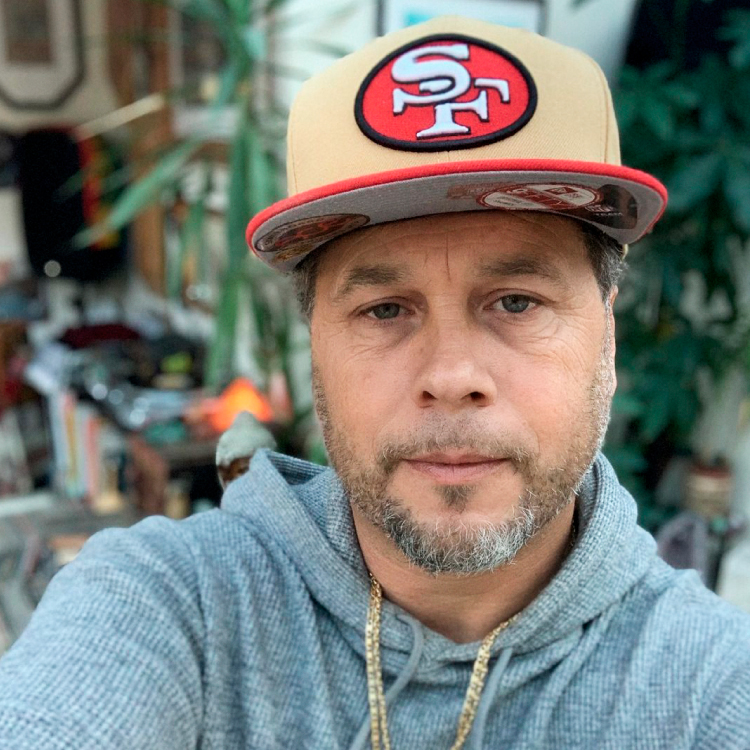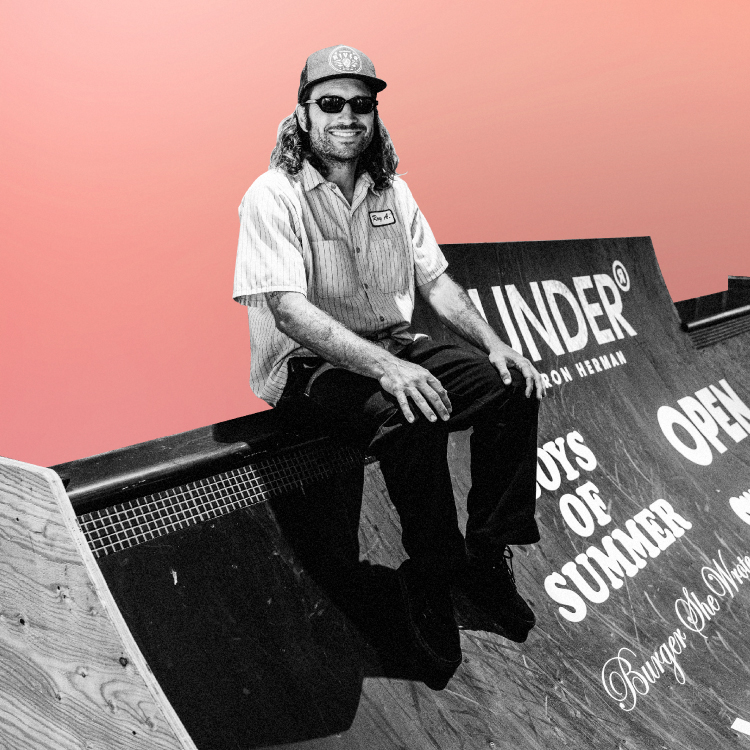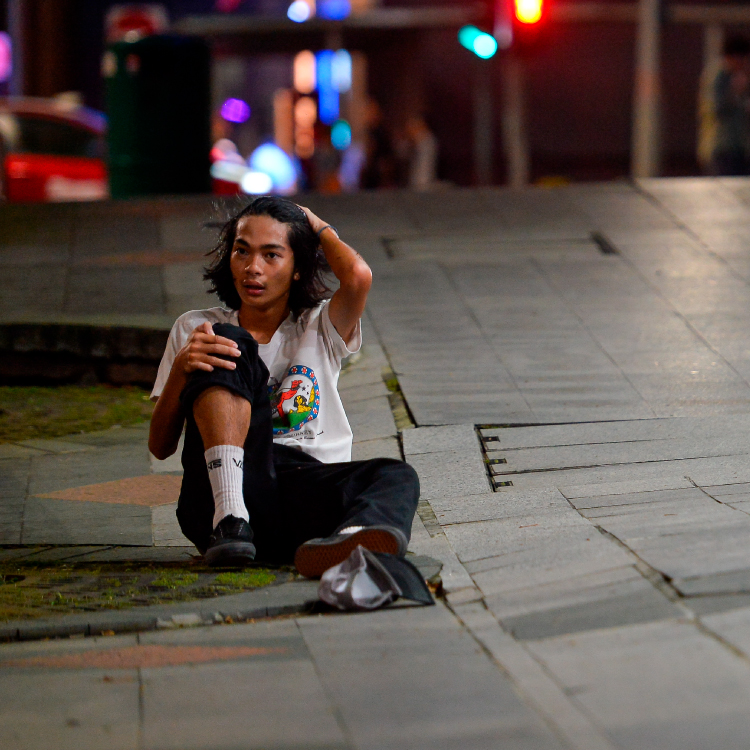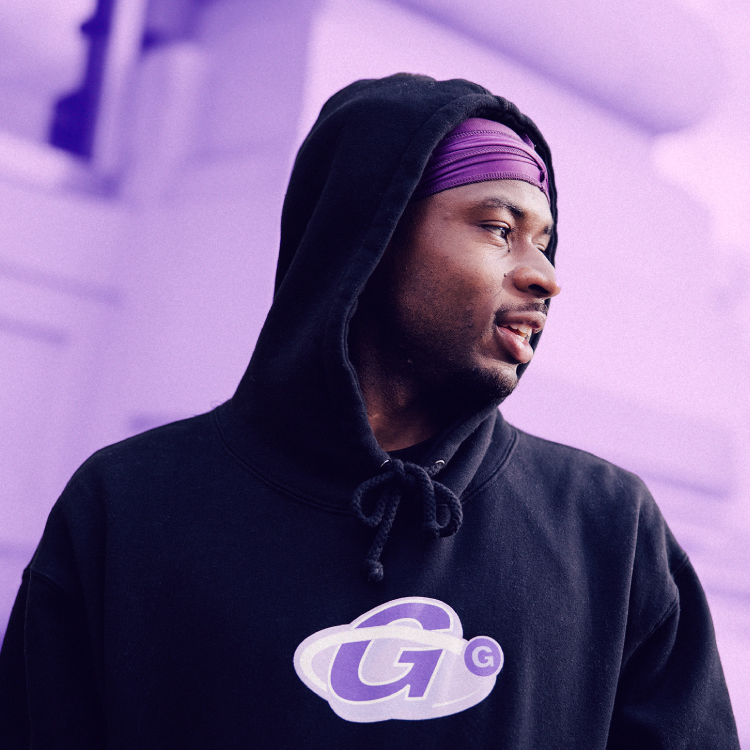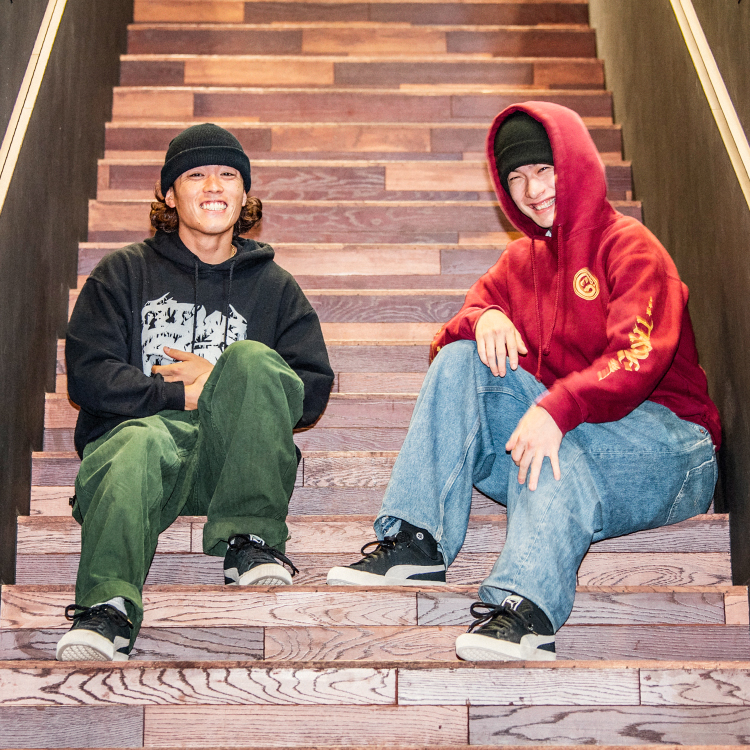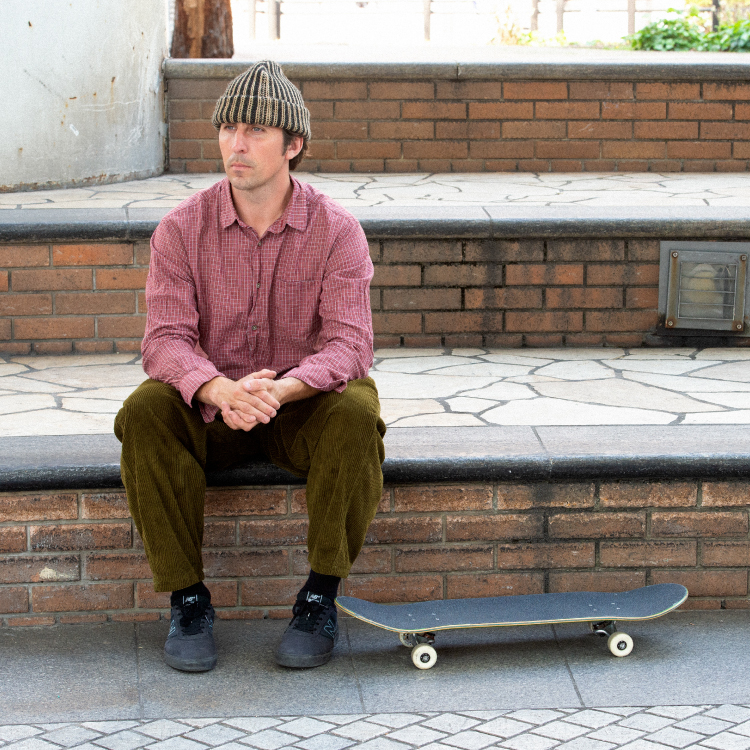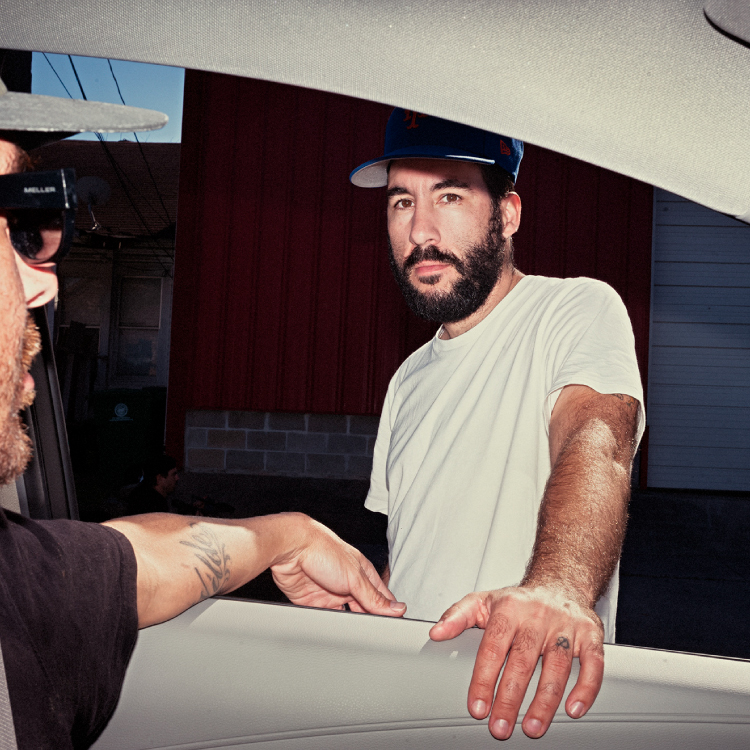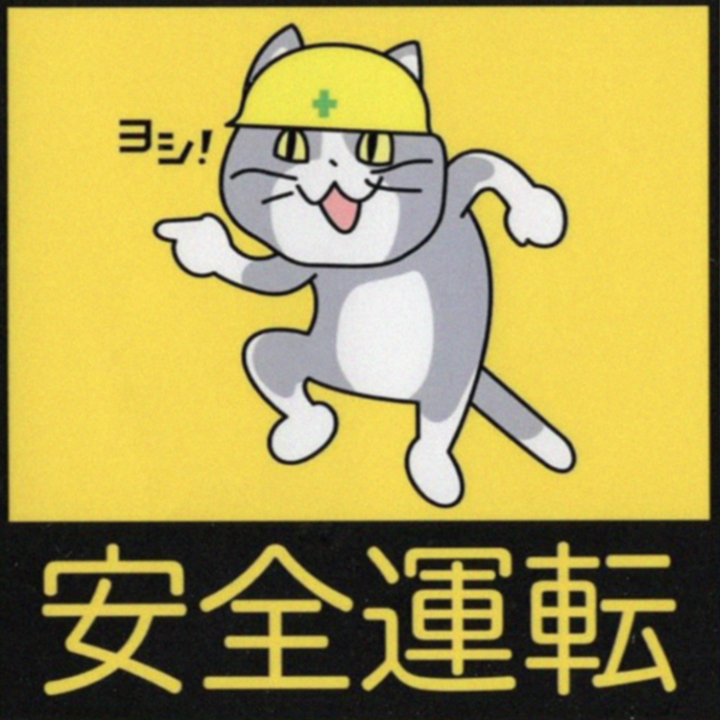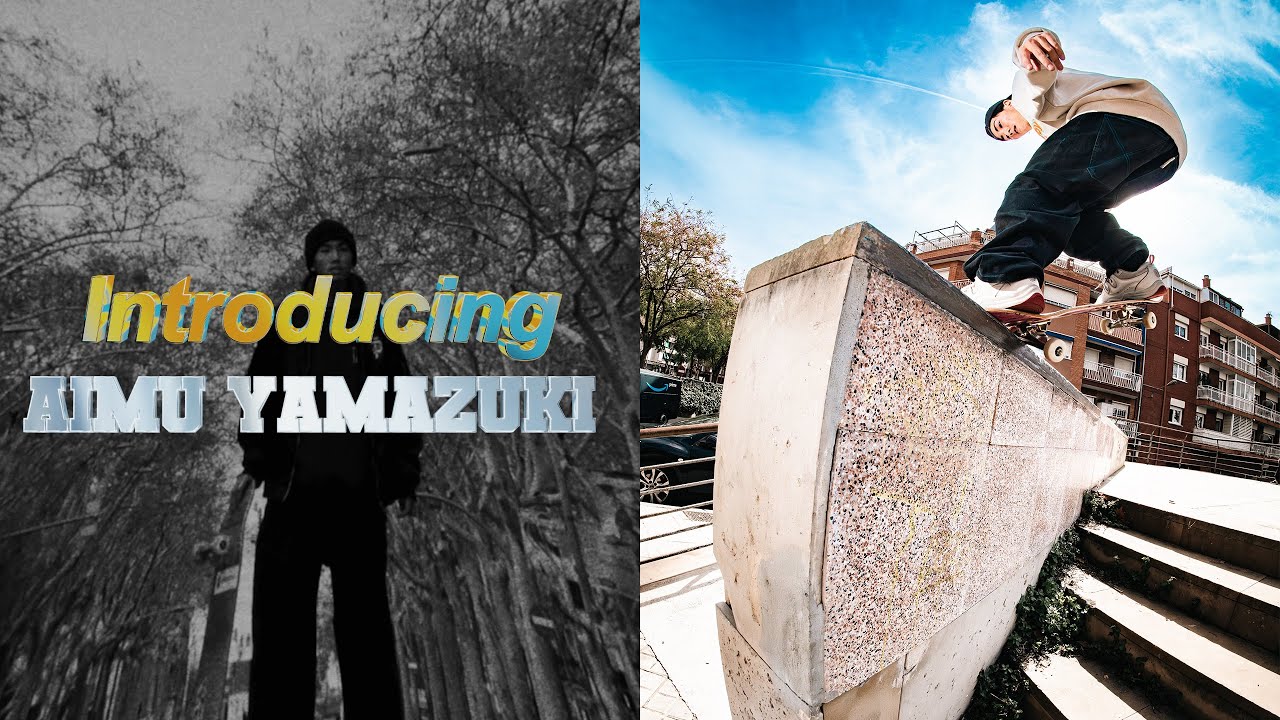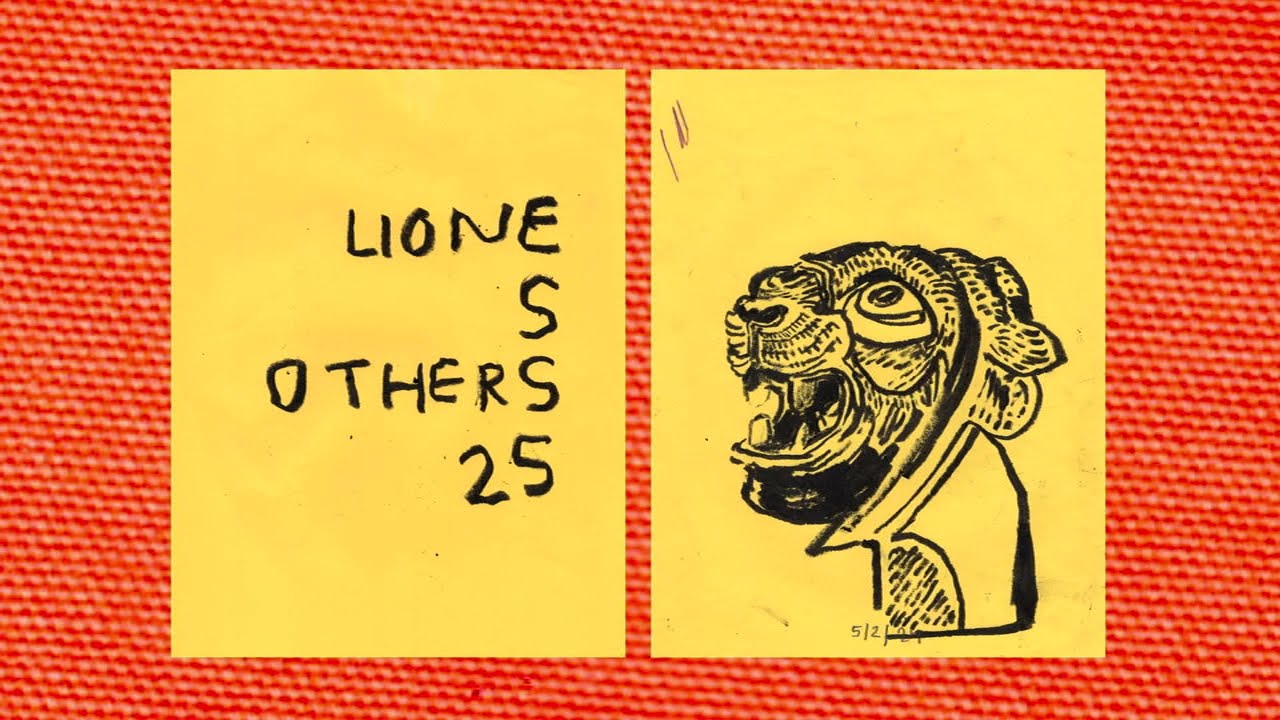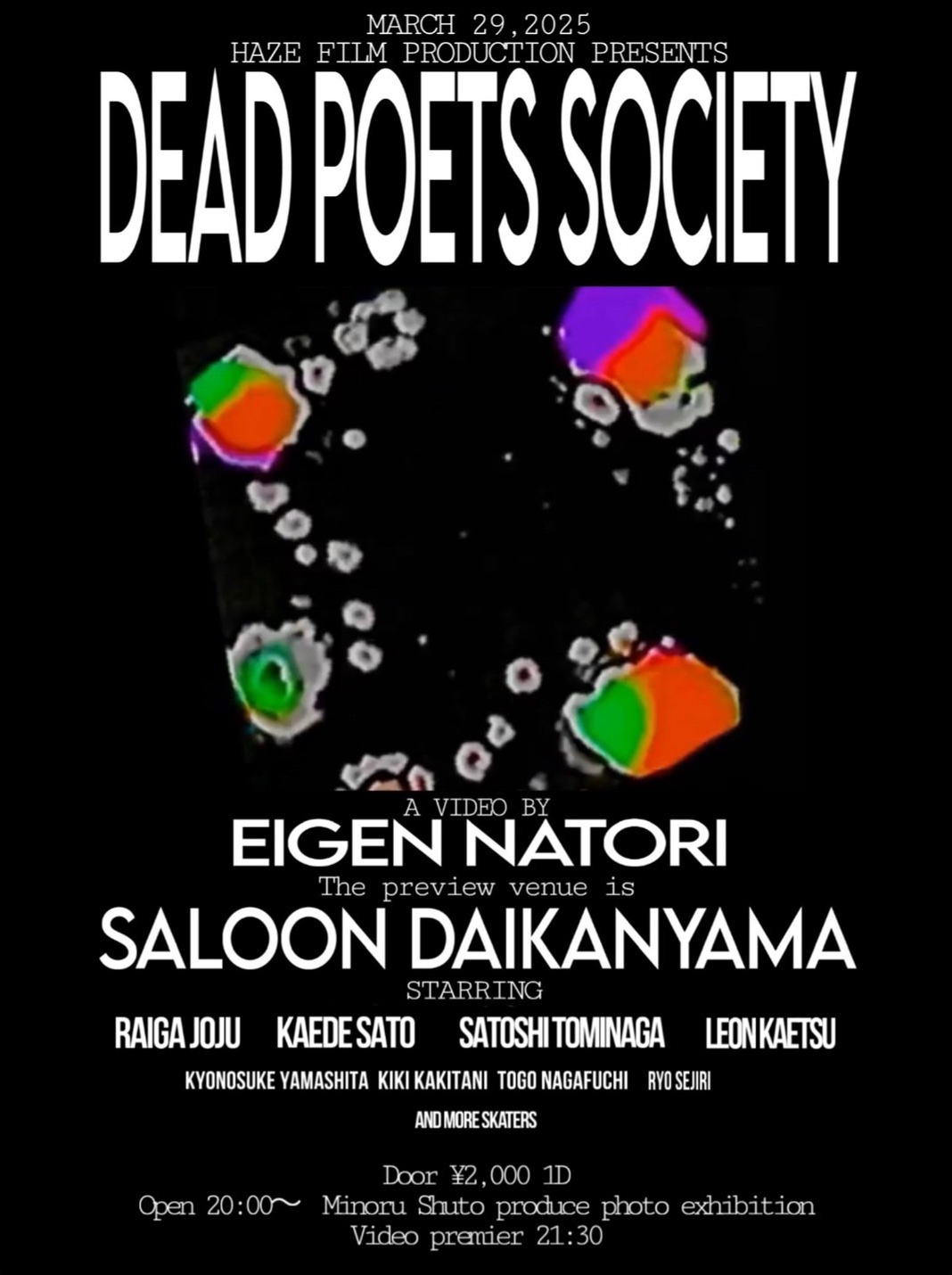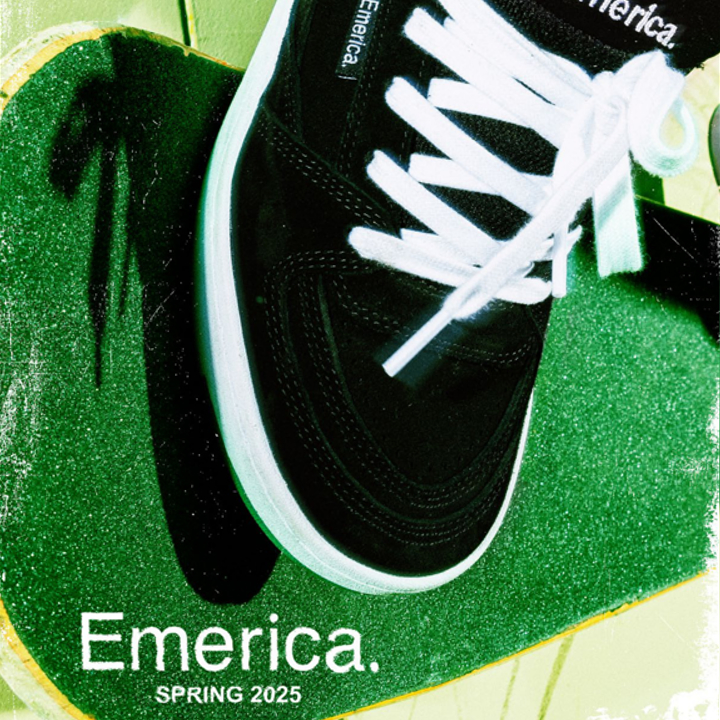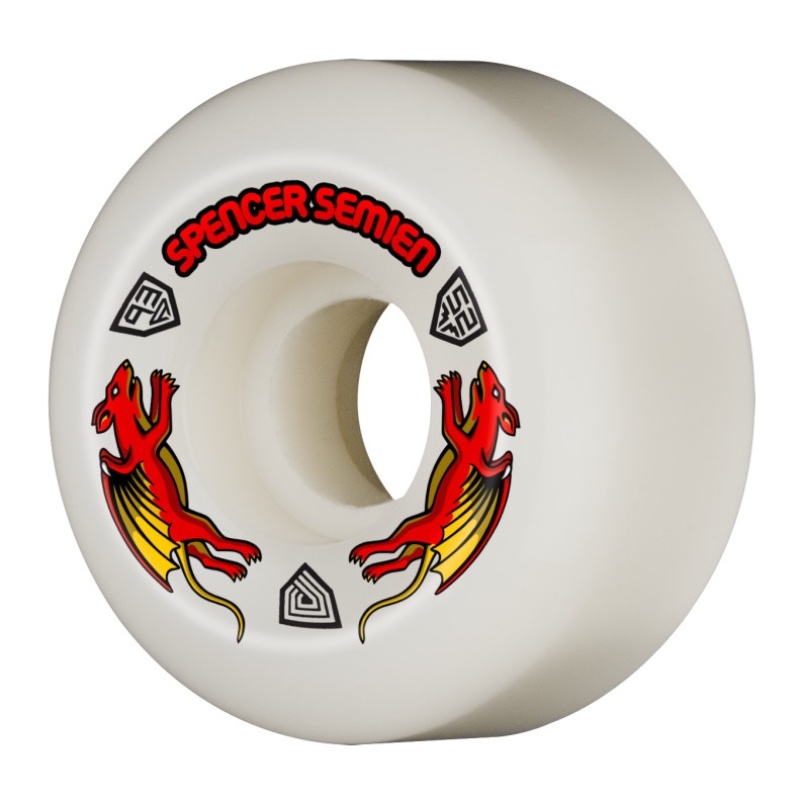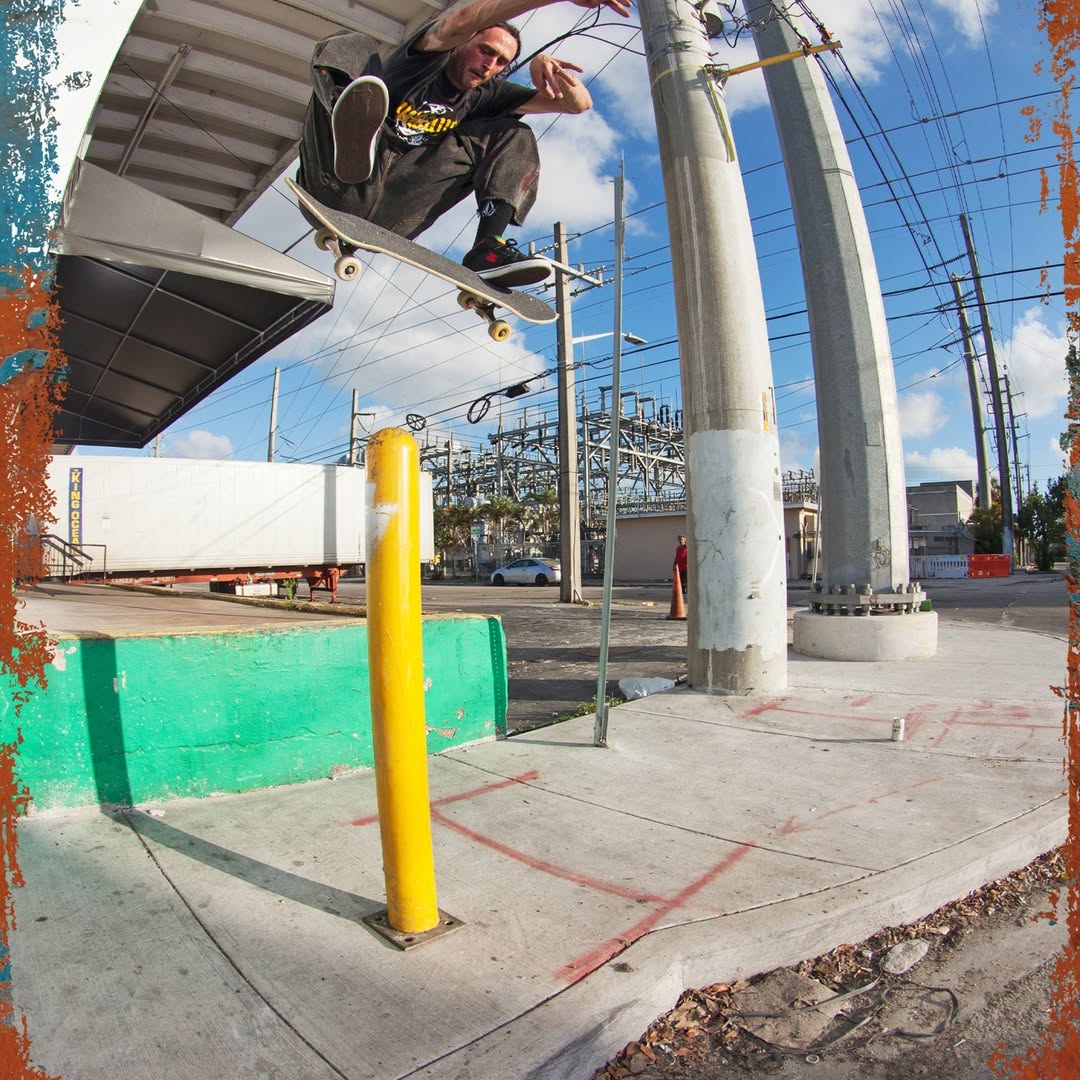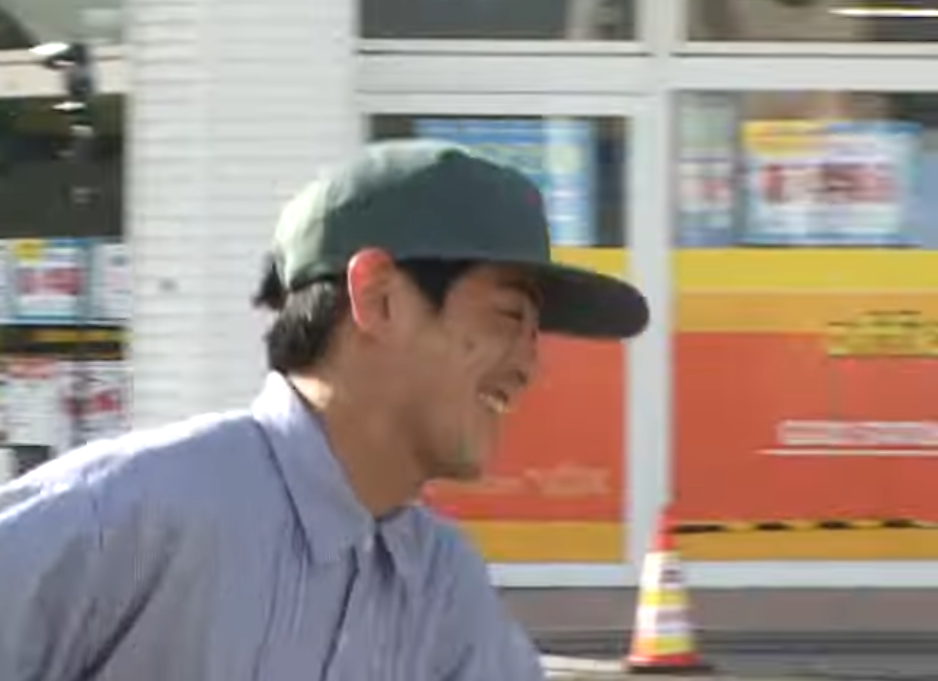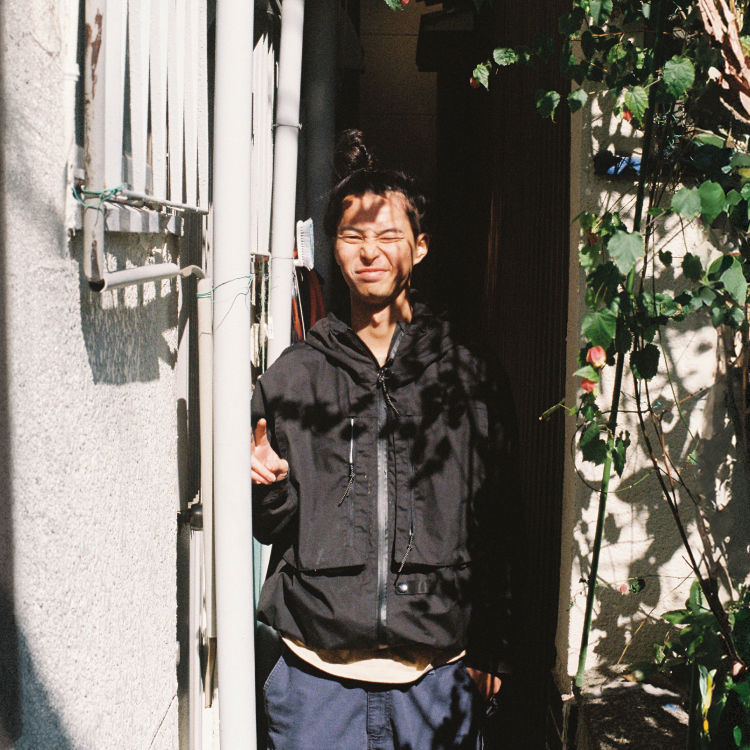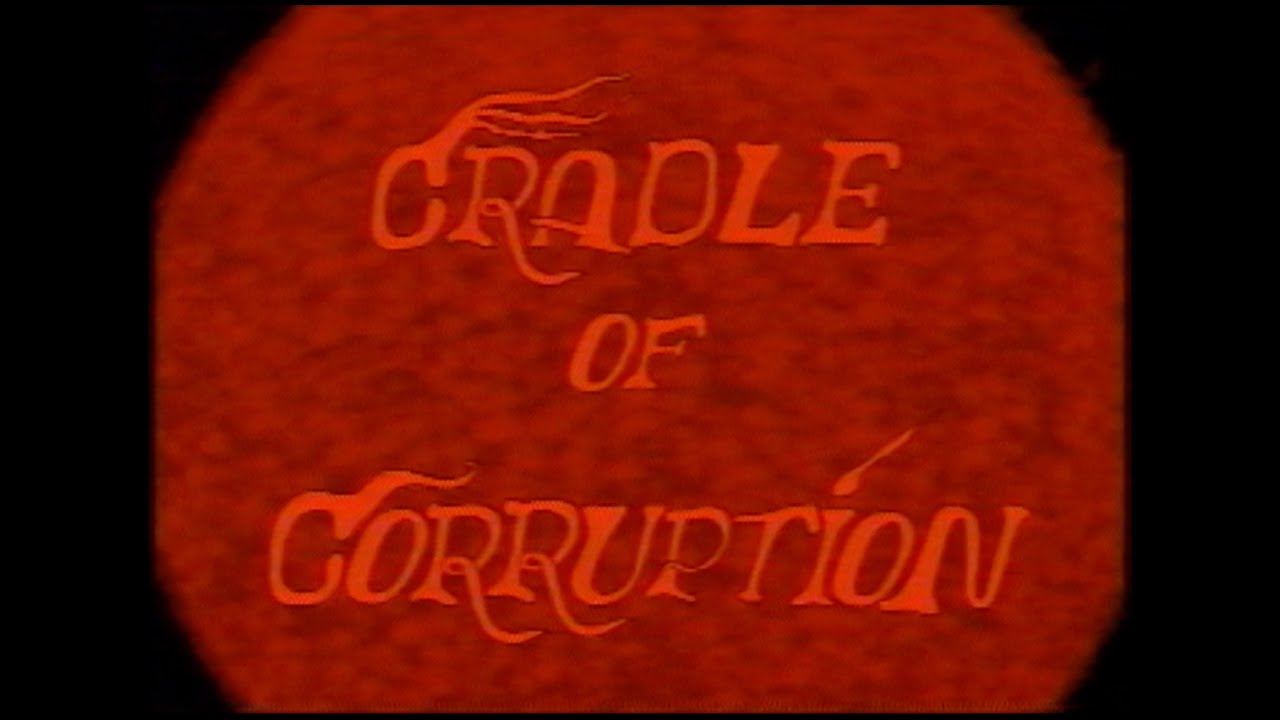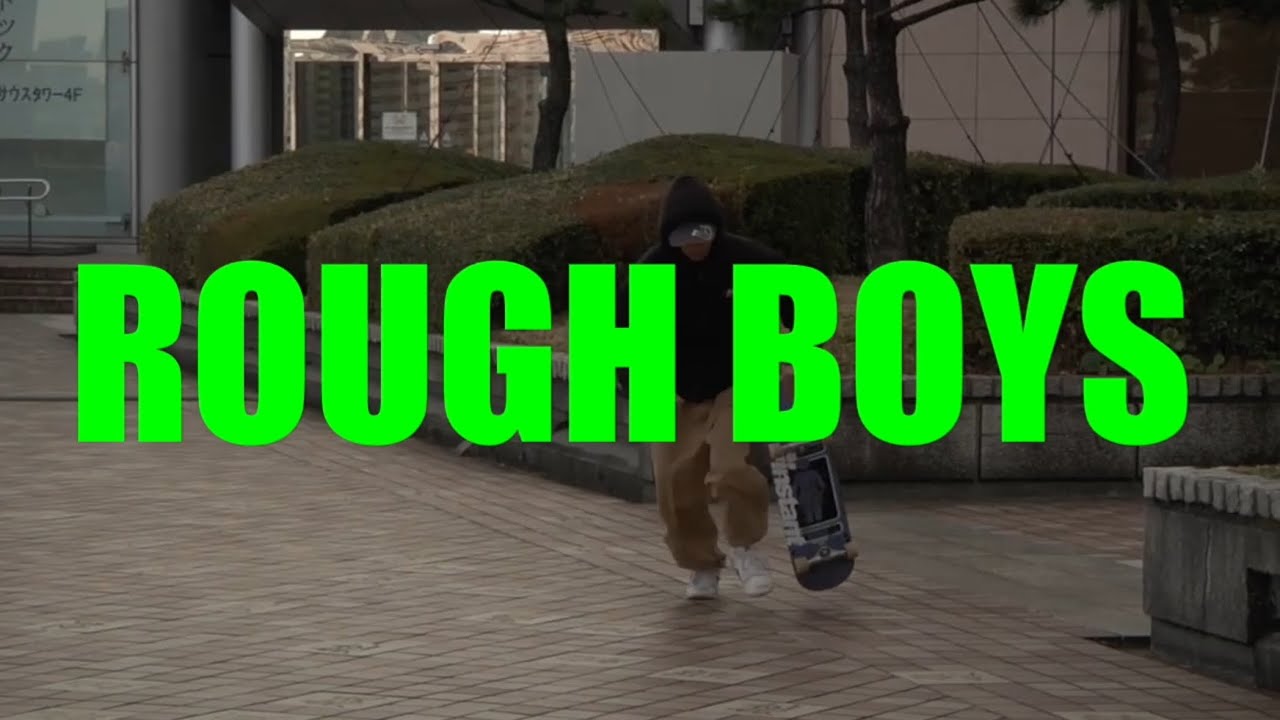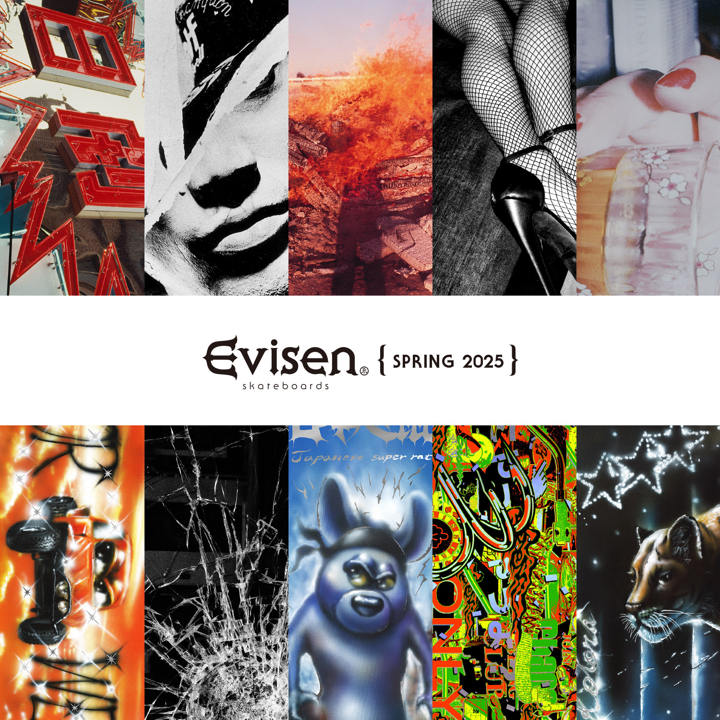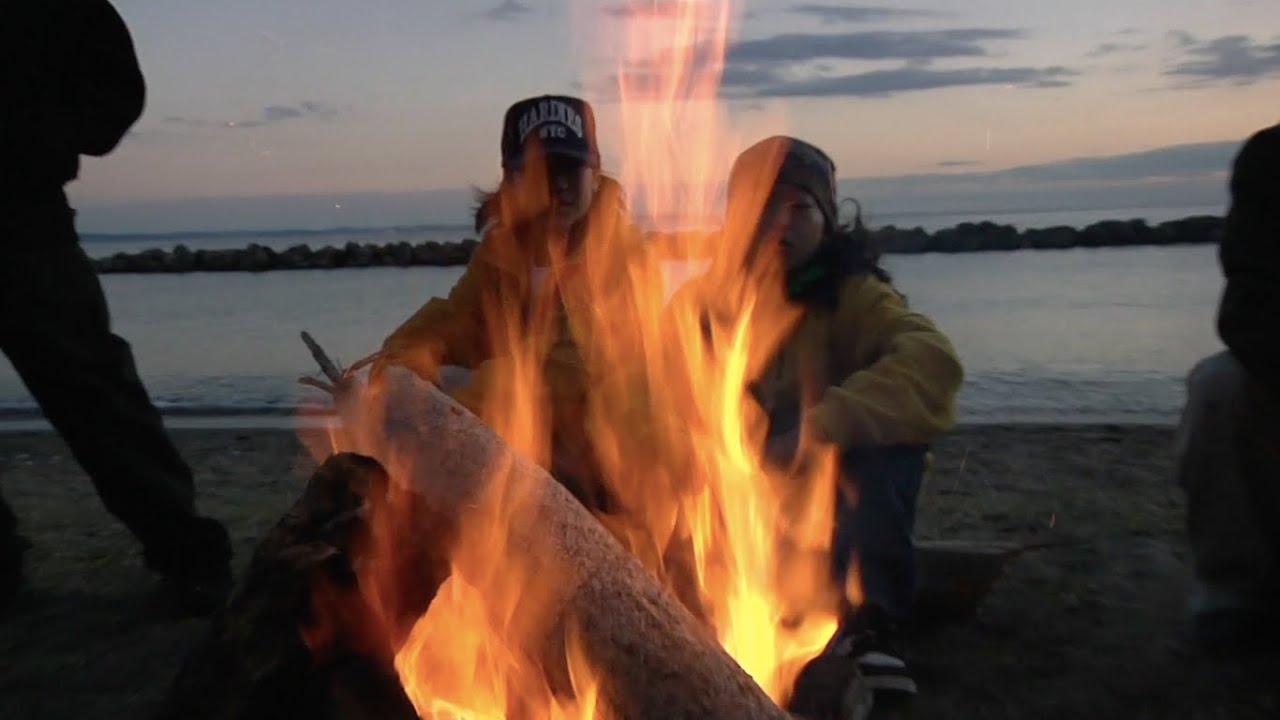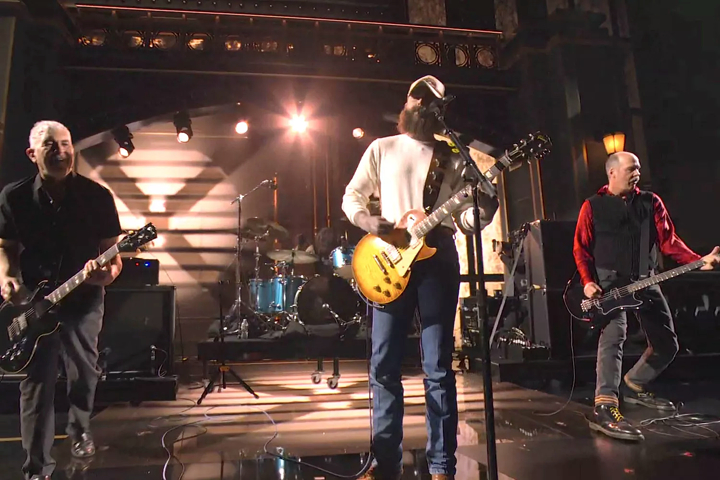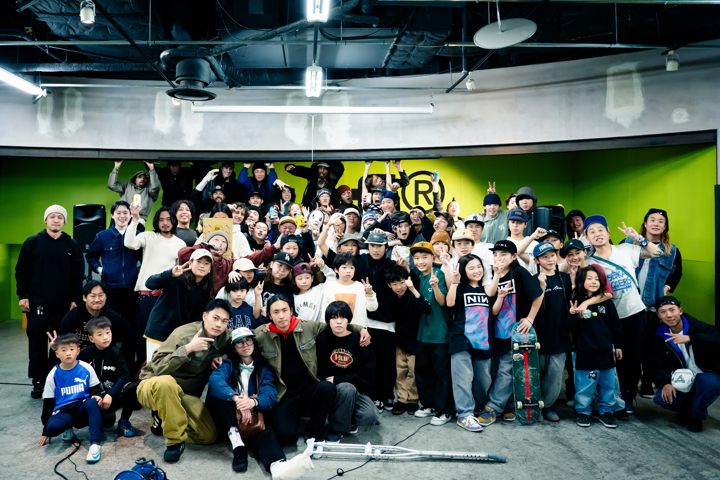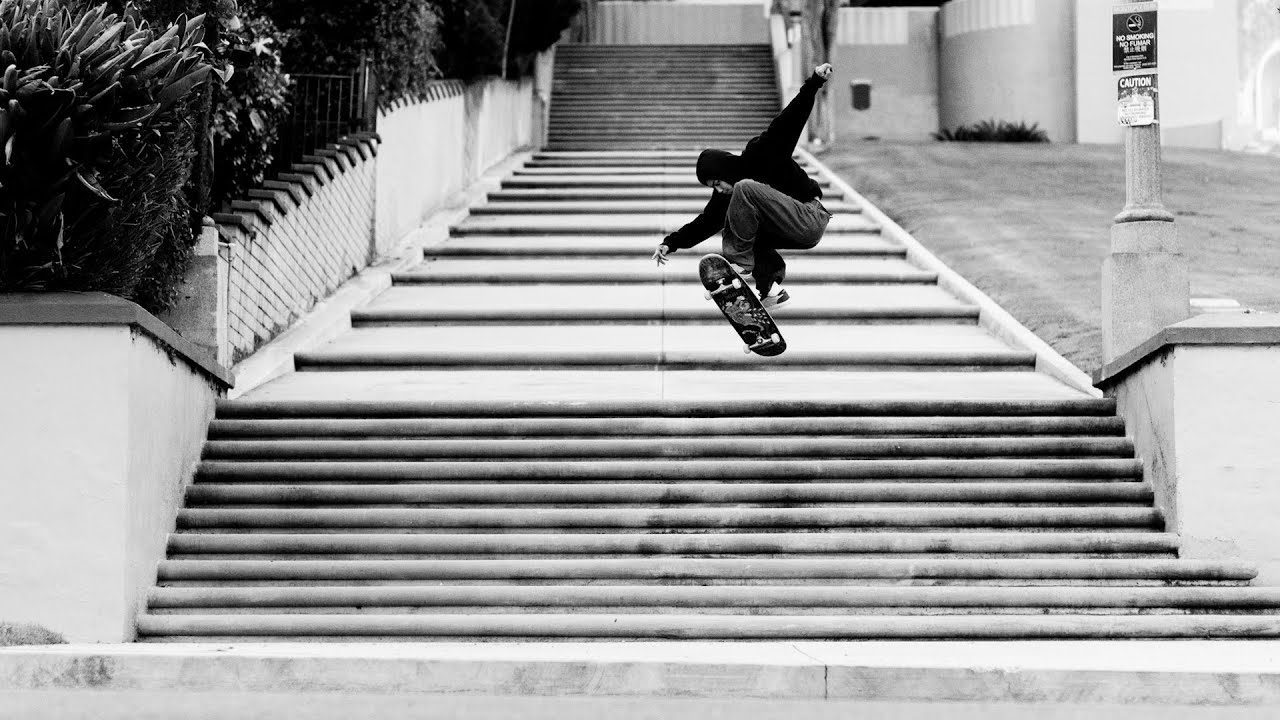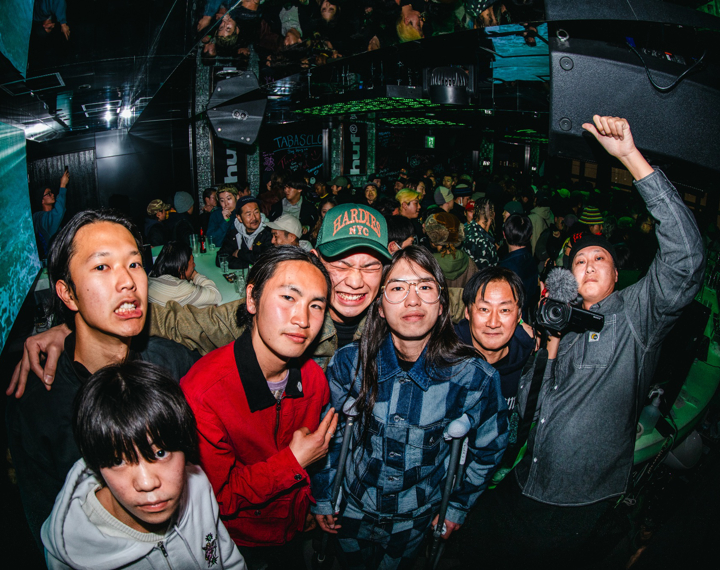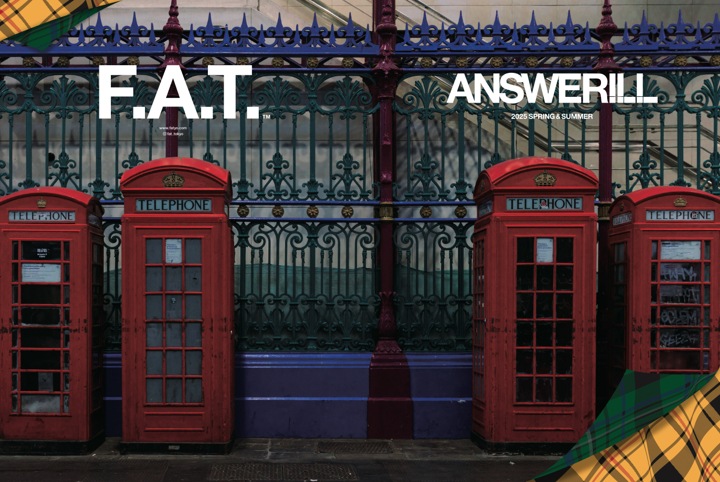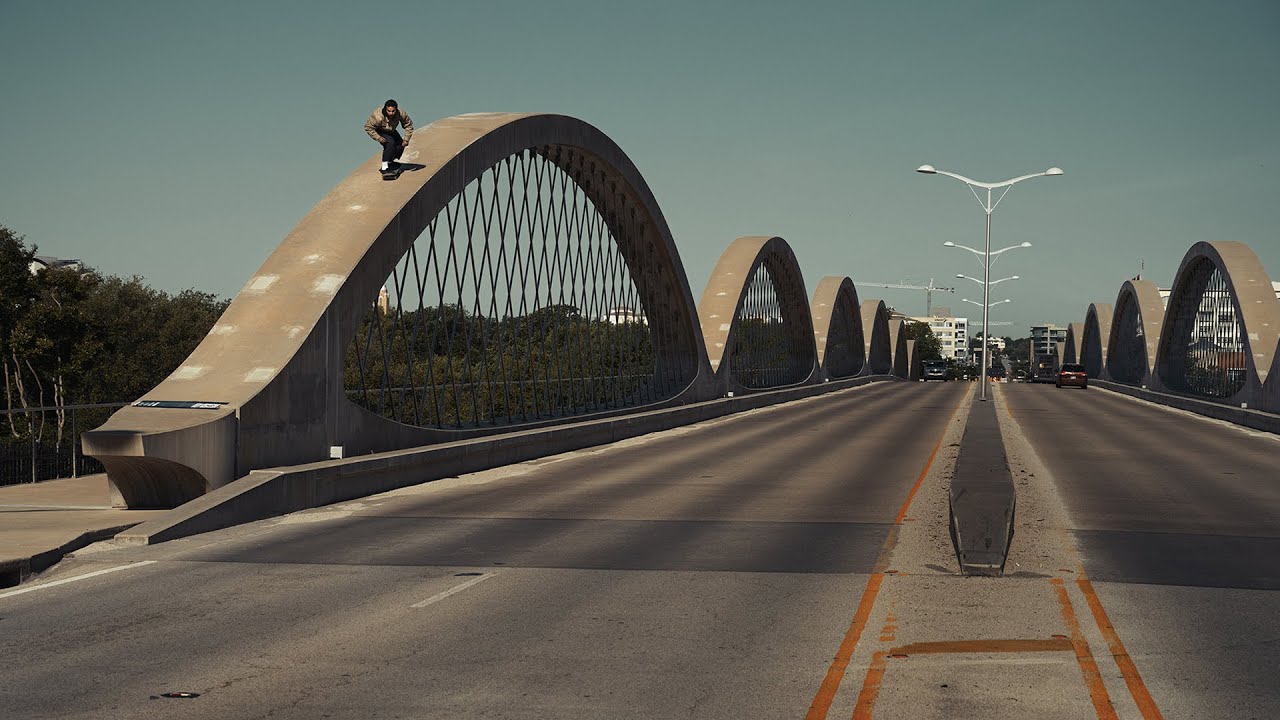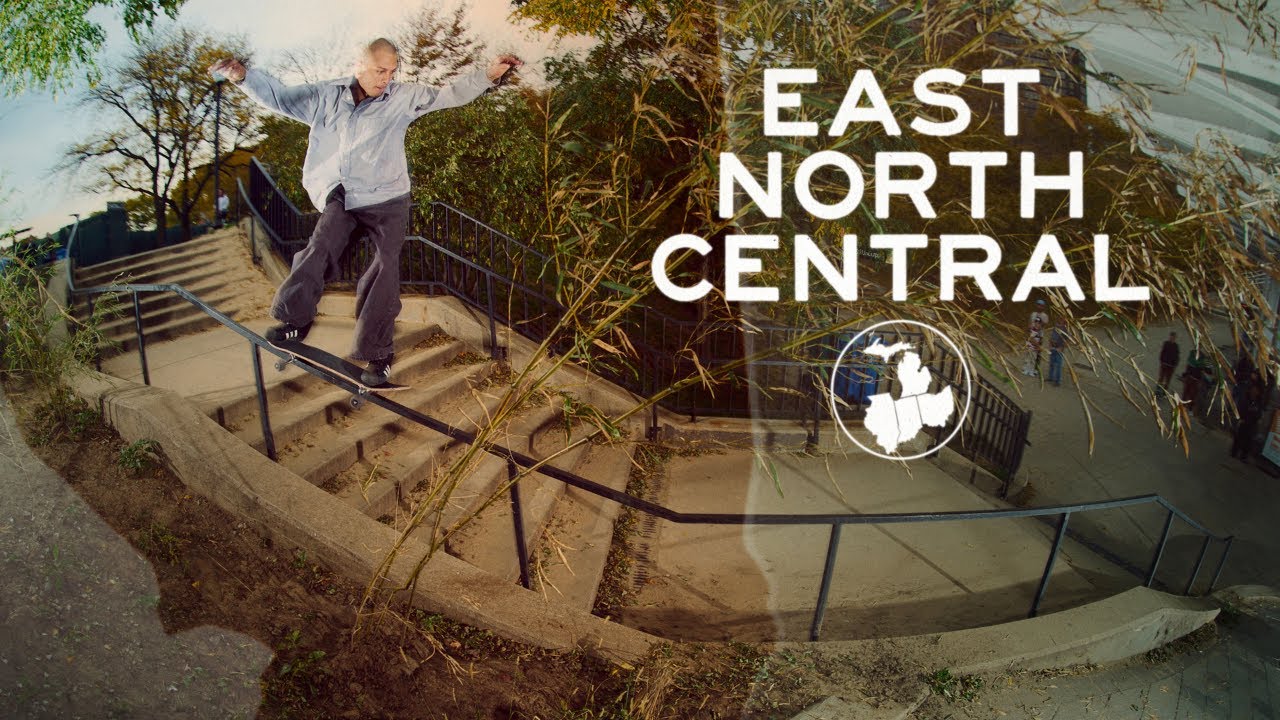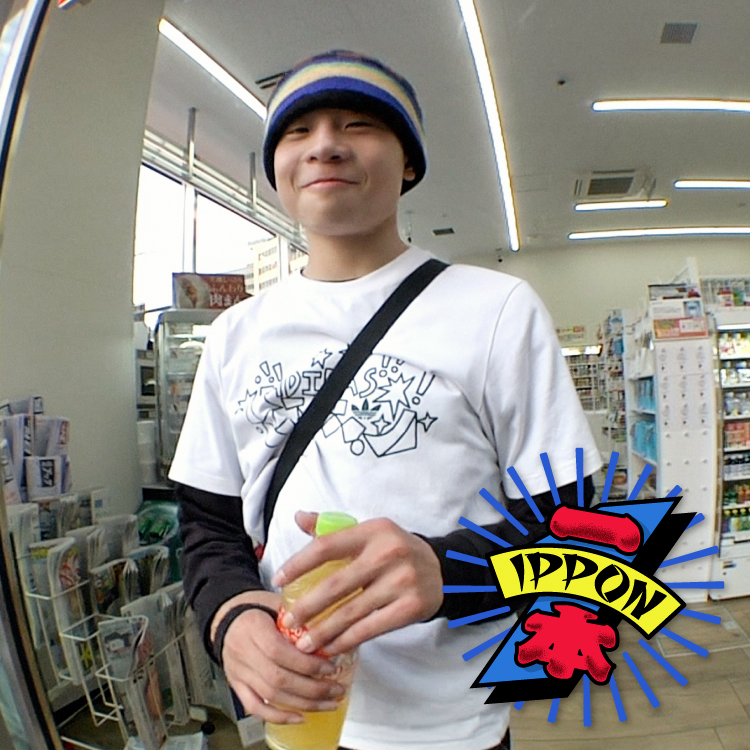Vans released the final episode of Loveletters to Skateboarding decitated to Japanese skateboarding. Six Stair's Rick Charnoski and Buddy Nichols look back on the 10 years of the show.
──GROSSO FOREVER: SIX STAIR (ENGLISH)
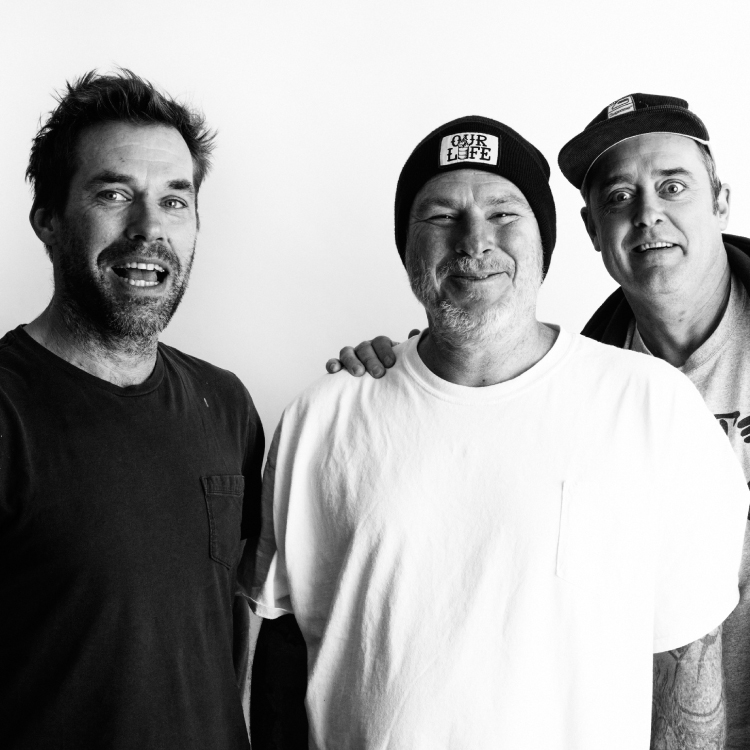
[ JAPANESE / ENGLISH ]
Portrait_Yoshiro Higai
Special thanks_Vans
There's something we need to explain first. This interview was recorded on November 10, 2019. Six Stair and Jeff Grosso came to Japan for a special feature about Japanese skateboarding for Loveletters to Skateboarding, and spent 10 days gathering interviews from November 1st. The underlying theme of this feature was to coincide with the Tokyo Olympics scheduled for July 2020, and to let the Japanese skate community know about the people who have helped build the scene. Grosso wanted to create an opportunity to look at the culture and history of skateboarding, not just something that's treated as a sport.
However, Grosso passed away, and then the Olympics were postponed due to the pandemic. And to respect Grosso's wish to release the video in time for the Olympics, it finally saw the light of day. So it was about a year and eight months ago that the skaters featured in this video were interviewed.
The following interview took place on the last day of the trip, in the van heading to Narita Airport. Grosso was supposed to participate in the interview, but he drank too much the night before and had a severe hangover. He was unable to say a single word, but I hope you will read the interview imagining that he is there trying not to vomit.
GROSSO FOREVER.
VHSMAG (V): Rick Charnoski and Buddy Nichols, you two started Six Stair. How did it start?
Buddy Nichols (B): I was working in TV and Rick moved to New York. We were both shooting video. I was making little projects and Rick had done a bigger project. We were working separately then we started working for TV stations together just because it was an awesome job to do. We had an idea since we were both making films to shoot a Super 8, and we knew we'd need two people. One person to shoot video, for the sound and do interviews or whatever, and another person to shoot film. That was in 1999. So we teamed up to do that just as a one off. Got to skate a bunch of pools and then we just took it from there. We kept doing stuff together in that same style for a little while and then after a few films we met up with the guys from Antihero through Peter Hewitt. We shot Tent City in 2000 and it came out in 2004... we kept going.
Rick Charnoski (R): You're skipping over a lot of good history here. We met in 1990 in Dallas, Texas, at Jeff Phillips skate park. That was the first time we met. He was coming from Portland and I was coming from Pennsylvania. It was Texas in the middle of the south so we were both on separate trips. We wanted to go to Jeff Phillips skate park because it was the best ramp. I mean, it was a dead time. So that's where we met. And then it was literally a couple of weeks and we all got along and had a great time. I had my crew, he had his crew, we just all got an apartment. And then years later I moved to New York and I was like, "Holy shit, it's Buddy!" It was absolutely skateboarding connected. We both loved skateboarding and we both really were interested in documenting it early on. So then buddy had this idea of a project. I was always into Super 8 and so was he. There was so much in common with what we were into.
V: What are some of your most memorable videos that you guys worked on?
B: I'd say probably the most memorable thing to this day was when we put together a first edit from our first film called Fruit of the Vine that we shot all in Super 8. And we've gotten the film back. We spent seven weeks on the road shooting the film and putting it in a box, and driving it around and we didn't lose it. We got it all back. I took it to a pharmacy right near NYU to get it developed. We had 90 rolls of film and a bunch of videos.
R: We went out and did the trailer thing first just to get our feet wet. That was the first step.
B: Right, so that brought us to the pharmacy. So first we had maybe 20 rolls of film. Because we went out to shoot a concept, to see if we even knew what we were doing. We went out on an advanced trip, shot a bunch of rolls of film, shot a couple of interviews, came back and we made one little edit. I'll never forget. We had probably skated 20 pools. The idea was to combine a bunch of shots of getting to a pool, jumping the fence, cleaning the pool, drying the pool, then skating the pool. And we put that together. We had both made shit before but...
R: That was the first time where we had an idea and we followed through with these steps. When we got back from the trip we put the steps together, and we had the music and the sound. And then there was someone talking under it and all of a sudden we were like, "Holy shit, this is like watching a documentary!" The idea was like a documentary, like a National Geographic. Literally we couldn't believe that we put these pieces together and it worked. It was so crazy. We had an actual abstract concept that we got from nowhere that had never been done before in skateboarding. It was all Super 8 film. We established that idea of storytelling... and literally the love for skateboarding. That's how everything started. It's really not much different today than it was 20 some years ago.
B: Yeah. It's like the drug addict you know, it's chasing that same high. You know with skating, the first grind. That feeling that you're always chasing.
V: How did the Loveletters to Skateboarding start?
R: It was just everything that happened with us. Every one of our films and every project, everything we've ever done has been a total fluke or an organic result of skateboarding. Nothing was ever planned. We never had a big idea. We never thought we're going to do this show called Loveletter. We've been doing this forever. We could be doing anything. We literally could be doing some ad agency bullshit. We've tried a little bit here and there, but every time it's been like, "Fuck, I'd rather go flip cheeseburgers." We fully believe in the people or the project that we're doing. It's been a full commitment, that's never changed. And we were really lucky to get a phone call. There was an idea and it was a Vans thing. They wanted to fire up a thing with Grosso because he was awesome at telling stories and he's a historian. He's fun and awesome to listen to and everyone loved him. It was just like, "Let's do something with this guy!”
B: Vans gave Grosso a mid top shoe but at first they're like, "We don't know where this mid top fits into the line." So we made a video of Grosso talking about how to sell a mid top and why it was so cool. And it's obviously funny and Grosso is doing his thing.
R: It was Jamie Hart's idea right?
B: Yeah, I guess. And they saw Grosso on camera and it was like, "Holy shit, this works. This guy's hilarious!" He's just a natural.
R: There's no nonsense. So he rang a bell with that video. It was like, "We don't need to come up with some complicated marketing scheme here. Let's just have Grosso talk about why the shoe's rad."
B: You know what's funny is that Vans wanted Grosso to do something like the Nine Club ten years ago. Something where he sits down and talks to skaters. And then they called us in like, "Hey, would you guys want to do something with Grosso?" We were like, "Hell yeah."
R: We were desperate.
B: Yeah. I mean we're always desperate. Look at what we do.
R: We were excited just to be at Vans and be talking to someone about a project.
B: And they put us together. So we met with Grosso and then we clicked. He didn't know us. I mean we had skated together at Ramona and we were friendly obviously but didn't know each other. We never had a conversation. So we hung out one afternoon and was like, "Oh yeah, for sure. Let's do it." And we just made it up as we went along.
R: Vans was opening the House of Vans in New York and they were having an event to bring all of the players out to introduce the grand opening. They were like, "Alright, you guys go out there and try to kick off a vibe with your video. Just go do your thing." Jamie Hart had the original idea and then there were two other guys that believed in us. Jared Abe and Steve Zeitzoff. They are the guys who always believed in us and always backed us. When we weren't around, they pushed it through. They believed in it, 100%. So anyway, we had this thing, combining interviews and skating. We had a little thing that we were good at doing.
B: Grosso was supposed to kick it off but he was avoiding us the whole weekend because he was nervous or something. He didn't want to do it. So we made everybody sort of roast Grosso.
R: And the video was called "Who is Jeff Grosso?" We went to Caballero, Anthony Van Engelen to Rowley and Dill... Everyone gave their funny answers.
B: That was the kickoff ten years ago. And then Grosso was like, "Hey guys, I got a name but it's probably too stupid. It'd be too weird to name it this, but Loveletters to Skateboarding."
R: In the very first episode, Grosso was like, "Dude, no question. My first loveletter goes to Steve Olson." And they were so simple in the beginning. Steve lives down the street, he's a good friend of ours so we called him up. The first Loveletters were what, five minutes?
B: Yeah, like three and a half, four and then they went to five slowly.
R: I think they grew pretty quick. It's funny thinking back to the evolution. Like we were saying, nothing's happened with a plan. Even when we've done shit for Vans or Antihero or whoever, it's always minimal planning and maximum sort of just whatever happens. So they grew.
V: Do you remember when and how it evolved into like, "Okay, let's go deeper, let's make it longer."
B: They stayed around five to eight minutes for about five or six seasons. So for the first 40 or 50 of them, they were pretty short. And they would be one little subject or whatever. And then the first one that we made long was skate rock, which was about music and skating. That one was 24 minutes. That's the first time we did a big one. It was more like a little documentary about music and stuff that skaters listened to. And then what really got us was, I think it was season seven. They always change up the format. Like they would say, "Make them all, and we'll release them on the same day."
R: This thing started because Vans was trying to start a TV channel. There were all of these phases. Instagram and all of these things have happened since we began. So the evolution of the show was kind of pushed with Vans trying to find out how to best connect and how to time things. So how we released them, the lengths, and part one and part two, it was mostly Vans trying to figure out like, "We release them all at once, every six weeks, every other week, two parts, one part." We were trying to follow whatever their format was.
B: By season seven they're like, "Okay, give us six episodes but have two parts. Each episode has two parts." So really it's 12 things and that's when we started making them longer because each part was eight minutes. So now each episode becomes 15 minutes if you put them together.
R: And I think that was because we were like, "Dude, we want to make them longer but we're never going to be able to hold the audience for 15 minutes. So let's do two short parts." We were still figuring it out. If you watch the Letters now, you can see the interesting evolution of how different they were from season to season.
B: The other thing that's changed a lot since we started is there's more and more stuff online. And what Loveletters is, in a big way, it's what you could call an internet aggregator. People love to watch old skate stuff if they're particularly older skaters. They love to watch an old contest but no one's going to sit through an hour long contest from 1987 or whatever. Or an old skate video, no one's going to watch the whole thing. So a lot of what the show is, is finding the best little parts of all those different things and putting it together so that someone can watch a ten-minute episode that has things from all over the place on the internet. The show gets longer because there's more to choose from.
R: It really did grow. Again, it's been ten years. So much has changed in the media and how we communicate in these last ten years. We started getting more people contributing too.
V: Do you ever run out of topics?
B: No, because people hit us with stuff all the time where we're like, "I can't believe we haven't done that." I mean, you could pick any skater from the eighties, and it's fun to put together a collage of their best photos and footage. Also Grosso has a funny perspective on things. Because obviously he is who he is and there's not that many guys from Grosso's era that look at things in a funny way. Some dudes are serious or they don't remember or they don't think about it. Grosso still thinks about skating every day. All the time.
V: Last night he was saying that some people didn't like him being the host of the show. Maybe jealous or something. Did you hear anything about that kind of stuff?
B: Well, we obviously don't hear it as much as he would, but I can imagine... But we saw so many people stoked to take a picture with Grosso in Japan. People love the old legends and to see someone's still around and even wearing a skate shirt still at 50. Just being involved and coming to talk to skaters because he's interested. So you can imagine some of these other dudes thinking like, "Why Grosso? There's a hundred of those guys." Grosso, by accident or whatever, became the spokesperson of what the 80s skate scene was and even the 70s because he's a fan of the 70s. For him, all the stuff that happened in the late 70s is like, that's when he gets really excited. Talking about Darrell Miller or these old pros that nobody remembers. So I could imagine old pros being like, "What the fuck? Why Grosso?" But he didn't appoint himself. It just sort of snowballed. And he always says, "I'm not the boss, I'm just throwing out my stupid two cents."
R: Grosso's good at it. That's the bottom line. There've been interviews that we've gone to do where I'm like, "What are we going to talk about here?" Like, "Really, we're talking about a 50-50 and we're going to go meet a guy I've never heard of before?" And then you sit down and the conversation starts and you're like, "Holy shit, this is really interesting." It took a while for us to really realize what it was that we were doing. I think it really started to happen when we started to go out of our comfort zone. Like, "How are we going to do this? How are we going to talk to Geoff Rowley?" There's no connection here at all. We can't force it, and we're not going to try to fake it. But really, you start to realize that skateboarding's young as shit. Right? We've all been alive to watch this evolution. Where it's gone from when we were kids skating to what it is now... I can't imagine anything that's moved that quickly, evolved that fast, killed itself and rebuilt itself so many times. And it's happening all over the world as we're seeing now. It's really exciting. It's really exciting to talk to the guy who first hit coping. Then you go talk to someone who's the first guy to hit a rail or a ledge and you're like, "Dude, this is all connected. There is no difference between all of this."
B: Neither of us were interested in skate history. Grosso always has been, but he grew up in the center of it. He got to see all of it so he's always been a big fan. Rick and I were never like, "We'd love to do something about skating." We became fans through getting to meet people, talk about it all the time, every day. And skating in a show, it's just a metaphor for other stuff. My thing is if you can get kids or anybody interested in history through something that they're close to like skateboarding, and maybe it makes them think like, "Oh man, it's so cool. We got all this history, we're part of something really cool." And then maybe they're interested in thinking about that concept on a larger scale besides just skating. You know, "I'm part of something, I'm part of a community. My town is cool." Just sparking that interest in looking backwards so that obviously you can make a better future. The more you know about the past, the better prepared you are for the future, right?
R: History is super interesting. History of anything. To watch how things have evolved. It especially gets more and more interesting when we've been traveling around the world now, and you're seeing how things are the same everywhere. Street skaters in China in the 90s, they're saying the same thing. And then also the artwork, the music, the writing, the magazines, the photographers, the videos and all of it that goes into skateboarding... It's a really cool community. It's like the perfect government. From skate park building to DIY skate parks. These things are all self-governed. Skateboarders came up with something. They've all stumbled into the perfect government. It's self-policed, self-growing, everyone looks out for one another.
V: Everything's in-house.
B: It's a way, not only to physically navigate the world on your skateboard, obviously, but a way to navigate the world with your crew, with a tribe of people that...
R: Yeah, that's it. It's a tribe.
V: What's the most rewarding thing about working on the Loveletteres?
B: Well for me, seeing the stuff come together. You start with an idea and we never know where it's going to take us. And then we get to the end and it's like, "Oh, wow, that's so cool." Another piece down. And then we get to travel around the world. Making anything with your hands and your brain is super rewarding. We get to create stuff. We get to create something from nothing, where there was nothing at all. We're creating something and that's just like skating. You're making something out of nothing.
R: Accomplishing, buttoning up an episode and putting it out and being like, "Wow dude, we killed it. We did all that and now we have a story." But that's the same in anything like building birdhouses or paving driveways. Anyone gets that. But I think the thing that's really exciting is when you travel around and people say they've seen the Letters. And we're starting to hear that a lot, now that we've done a lot. People were telling us they've seen the shit and how much it meant to them. We got fans, dude. It's crazy.
V: Yeah, around the world.
R: It's crazy. If you say you made the Loveletters now, people know. That's the most rewarding thing. And that took a while, and we never looked or cared for that or wanted that or whatever. It was the result of punching these things out. We sit in a cave. It was Buddy and I, pretty much alone. And you make these things literally in a room by yourself and then you pump it out. You're really isolated when we're making these things. It drives us crazy sometimes. And all that finally adds up to people actually really appreciating it and getting feedback. That's the shit right there.
V: That keeps you going.
R: Yeah. And the growth of it. Like bringing in Bradley and building a library in our studio and looking at all the hard drives that are filled with skateboard history and amassing videos, DVDs and zines from the guy who sat in the van with us in Japan, and access to go to a secret spot because they know we do the Loveletters. It's unbelievable. I don't know what I would do. There's no way I could work a job. And it's not selfish or personal. It's not like I'm out there traveling and doing me like, "Look at me shred, look at me be rad." We're shedding light on all that we can to tell a story. That's so satisfying.
B: Yeah, that's fun. It's super rewarding for us to highlight skaters and people that nobody else is highlighting or showing. Some old guy from the 80s. The guy that invented the 50-50. Basically the first guy to do it in a contest or whatever. Or the fakie rock or the boardslide. To just remind people all this shit happened. And when we come to these countries to showcase, a lot of the people we interviewed are like, "Wow, man, you guys came from the United States and you're talking about our scene." When a normal crew comes from the US, sometimes they're only taking. They're using the resources that the place has. And most skaters are more than happy to share. Of course, they'd love to see the best in the world come and rip their spots. That's inspiring. And we're just another part of that equation. We're inspiring kids to know that they're part of a bigger thing than just themselves or their crew. We're doing our little part, and we love skating so much that it's super satisfying to be able to do our part. It's rad to be able to do stuff, positive shit for skating.
R: It's there for life. People can always refer to these things. They can always click in, and if they care to go that deep into it, they're there. And nobody else has done it, nobody else is doing it. And I don't think anyone else is going to do it. It's not like we're going to outer space or anything. We're just grabbing interviews and pictures and videos and assembling them and putting them together.
V: It's a massive archive.
R: Yeah. I'm starting to think about it now that we're older and that we've been doing this shit for so long, it's something to be really proud that we're able to contribute to skateboarding. Because it is the coolest thing in the world. Hands down. Talking to that little kid yesterday, talking to Lance Mountain... Every interview is the same deep down, all across the world. Sometimes you literally start tearing up because it's so pure. Everyone is motivated by the same thing. It's individuality and expression. It's art. But this strange art form never existed before. And it's a community and a tribe. Talking to those guys from T19 and you see this dude's graffiti art, you see it's all connected. And Haroshi gluing boards together and making sculptures. When you see this shit, it brings you to tears sometimes. It's like going to the Holy Land. People go to Mecca or whatever to get stoked on their belief of a higher power. Our shit, it's skateboarding. And the things skaters build are the temples, the churches, the mosques and the synagogues. This is our shit. It's just as important.
V: It's like our religion.
R: It is. It's just as important as any of that. And the coolest thing is it's all self-made and we can trace the history. We're still alive. The people who started this are still alive. Technology didn't fuck it up, the internet didn't fuck it up. Plastic rails or new trucks or the Olympics or any of these things are not going to fuck it up. It's too gnarly, it's too radical. One time I was bellyaching about some skating stuff now, and Julien's like, "No, dude. There's always that fucking kid in the street, who just ripped his elbow open." Nothing can touch that.
V: What's skateboarding given you?
B: You know, it's funny. We ask this question to other people all the time. To have the tables turn and think about it... It's hard to think about what skating's given me because it's been one of the biggest parts of my life since I was able to choose what I wanted to do at age 11. My memories and the life I've lived, the places I've traveled, the places I've lived, the people I've met... Most of the experiences I've had, they all come from skateboarding. And you look at that little kid Kotora ripping and you're like, "If this guy sticks with it, he's going to have the most amazing next 30, 40 years." None of us have any idea what that kid's going to be able to do with skateboarding. Where he's going to go around the world 20 times, and he's going to meet thousands of people, and he's going to have so many rad times and hangouts. And with skating, you can live outside of mainstream society. Like Rick said, it's a self-governing thing. We live outside the normal routine. We get to do shit our own way. And skating has given me that. It's given me everything. It sounds corny, but it's true. I don't have anything without skating because everything has been affected in some way by it.
R: Yeah. There's not a thing in me that doesn't come from skateboarding. And that's partially because it's all I've ever done. Something grabbed me at a very young age. Everything goes back to skateboarding. It's hard to describe the depth of it. I mean, if you're a skater, you know. Hopefully you appreciate it and recognize how cool it is, and it just keeps getting better. Even being in our fifties now. It's still just as exciting. You hang out with the kids that are 20 and there's hardly any separation there. There's so many things. It gets crazy. That's why I think it's like a faith or a religion. It's all of those things that people look for in the world. To have something to revolve around and connect to. Every box is checked and then some. It's the ultimate, we're really lucky to have it.
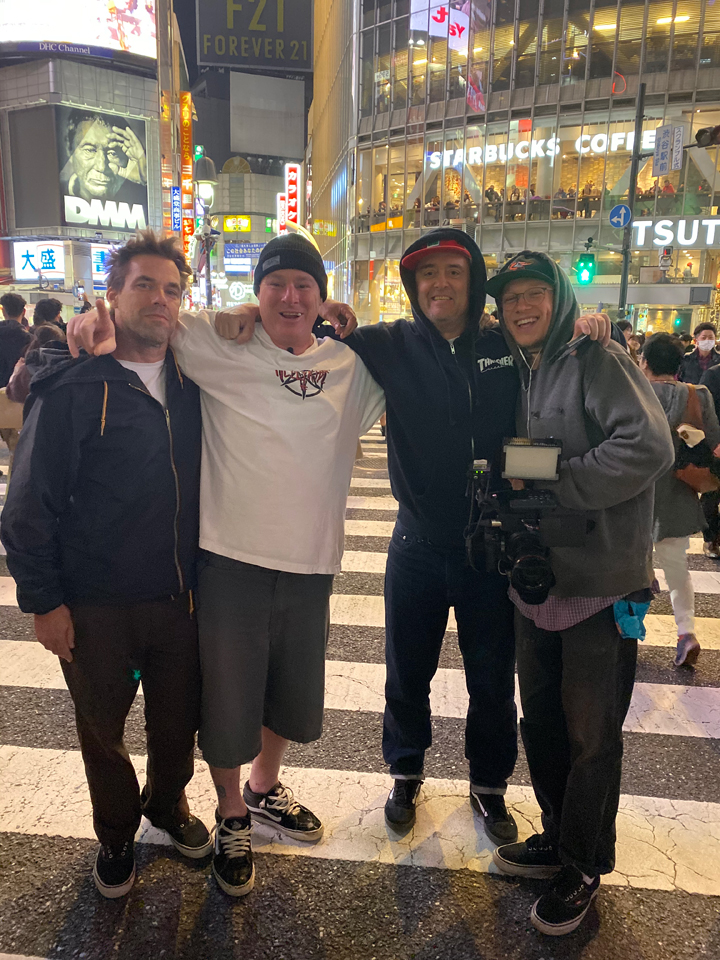
About five months after this interview was recorded, Grosso passed away suddenly on March 31, 2020. A few hours before, he had just posted a video of himself dancing happily with his son Oliver on his Instagram. The news of Grosso's passing was something we couldn't believe, and skaters all over the world expressed their condolences. The following is a short interview we did with Rick, Buddy, and Bradley Weems (the videographer for Lovelletters), after Grosso passed away. The last love letter to the late Jeff Grosso.
V: None of us were expecting this but Grosso passed away. Could you share a story with him that sticks out in your mind?
R: My favorite story about Grosso happened many times. It may sound cheesy but every time we sat down to do an interview with someone I enjoyed watching him finding his groove and connecting with people. The experience of showing up to someone's house, the nuts and bolts of setting up the shot and getting started was sometimes a little awkward, even comical, but it would always turn into a great conversation.
Bradley Weems (BW): I started typing about the first sandwich Grosso made for me but then remembered the kid he let stand on his hands in Paris so he could reach the sign he was trying to tag. Between the tagger and Grosso, I'm not sure who was more stoked. This was after an already 14 hour day of shooting and right before a 5 hour drive to Lyon at 11pm (thank you Pfan), AND, for what it's worth, with a belly full of French cuisine.
B: Rather than share one particular story I'd like to share the vibe of traveling with Grosso. Going around the world with him for Loveletters was amazing. So many people were so stoked to meet him and just say hello or ask him for a high five or photo. And he was always happy to say hello and meet people. It's a cool thing about skateboarding. People love Grosso. Even Morita... who is such a legend of skateboarding... he was so stoked to meet Grosso and tell him how much he meant to him and other skaters in Japan. I couldn't believe that!
V: Anything that Grosso said that you can never forget?
R: I don't remember exactly what he said but there are some moments in his Rant and Rave episodes that are all-time.
BW: Too open ended... There's so much I've forgotten but I'm constantly reminded of in the subtleties of life. Grossman is eternal.
B: Just seeing how serious Grosso would get when he was talking about skateboarding. He would cry sometimes when he met his heroes from the 70's. One time we were interviewing Scott Foss (original member of the Bones Brigade) and when Grosso was introducing him on camera he choked up and had to wipe away a tear... He got that emotional just being in the presence of someone he considered to be a god.
V: Grosso has touched so many people through his skating and the Letters. What do you think is the legacy that he has left behind for the younger generations?
R: I think he will be remembered for his honesty and his ability to communicate an idea that people can relate to; skaters and non-skaters alike. He was good with summing things up but also always open to broadening the discussion with new opinions and ideas. I think the Letters will be watched for a long time. People like Grosso have a long shelf life.
BW: I can't think for others, but Grosso (Rick and Buddy included) has left a well curated list of skateboard history for anyone that's interested. What you do with all the information is up to you, and if you aren't already stoked on history in general, it's an unorthodox way of getting you stoked... all of a sudden you're in for a lifetime of learning.
B: Well... I hope his legacy will be for everyone to take a minute to stop and remember how amazing skateboarding is. I mean for the real skateboarders of the world, all of us who live for it every day, who have grown up in it and become part of it, to stop and think every once in a while about how cool it is... and then to make sure you do something to make sure that some other kids coming up get to experience what we all have. Make sure that more young girls get access to skating, more kids who might not have anything else get to skate, queer kids, poor
kids, etc spreading skateboarding all over.
V: What are the things that Grosso valued in skateboarding and the Letters?
R: Again, honesty. He was about getting it all out on the table whether you were right or wrong or didn't know, he wanted to hammer it out.
BW: I can't speak for Grosso, but I'd like to add that it's all about GETTIN' DOWN... wherever and however is up to you, but don't turn those to negatives and for sure not an excuse to NOT get down! Oh, and you don't have to like it, but you should know and respect the people who have come before you. As Grosso says, there's nothing new under the sun.
B: Above all else Grosso valued style in skateboarding. On one hand, style is about tucking your knee on a frontside air... but it's also having the confidence to grab between your legs and not care about that because you're having too much fun to let someone else tell you how to skate!
V: We're all hoping that someone could carry on the torch and continue the Letters. Any possibility?
R: A Loveletters book and a Grosso film would be my two top picks but that's just me thinking out loud... to the internet. I'm sure we'll figure something out but continuing with the Letters is tough to imagine.
BW: That's over my head, but there aren't two of any of us, especially Grosso. I'd like to reflect on what's already been done and do my part in preserving the archives that exist. There's a lot of information that has been recorded over the past 11 seasons.
B: There are a few ideas being floated around... there are definitely a bunch more stories to tell...
V: Lastly, message to Grosso please.
R: DAMNIT GROSSO!
BW: I gotta also say DAMNIT GROSSO! But not without saying thank you. Unfortunately they're being said under these conditions but man what a run. Time to skate a curb.
B: Thank you for inspiring so many people and for keeping an open mind, and trying to learn right until the end.
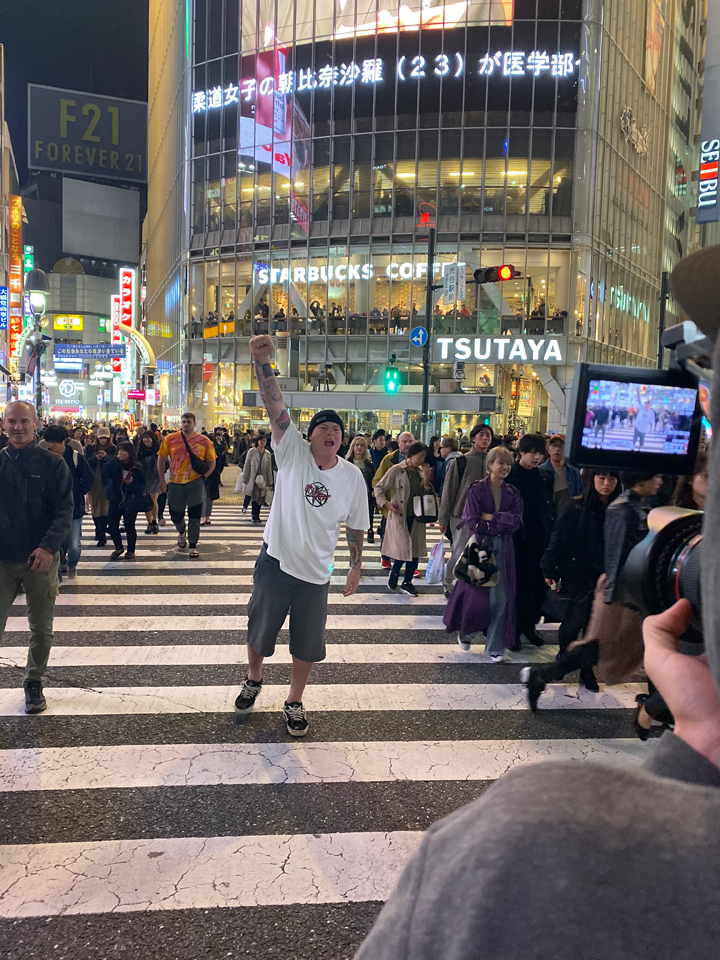
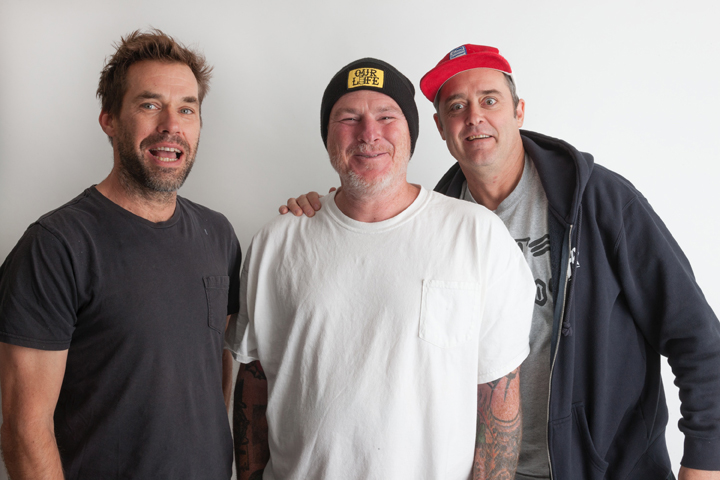
Six Stair
@sixstair
A film production based in LA, run by Rick Charnoski and Buddy Nichols. Their works include Fruit of the Vine, Deathbowl to Downtown, Tent City and Loveletters to Skateboarding.








